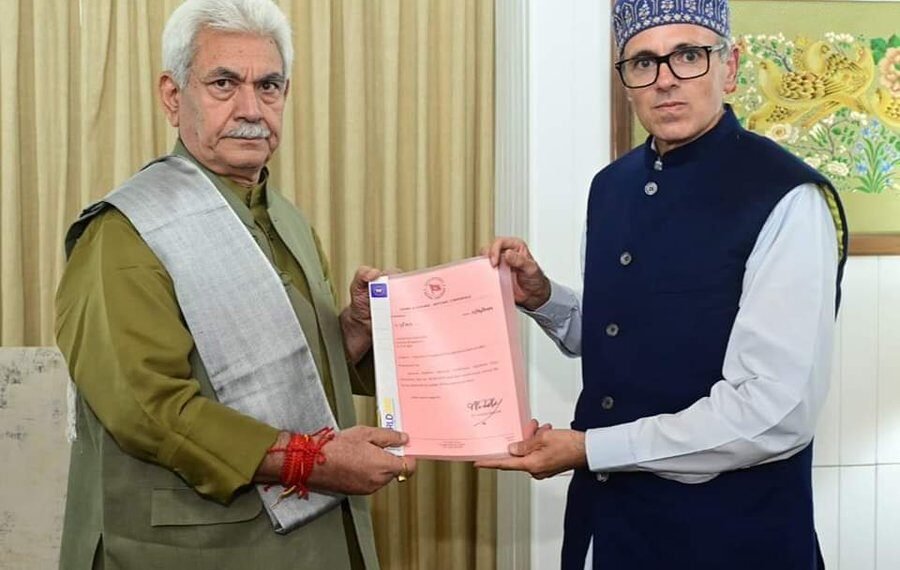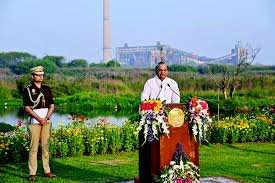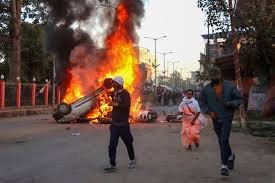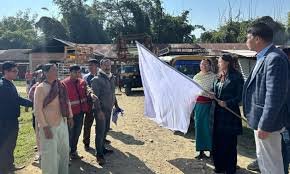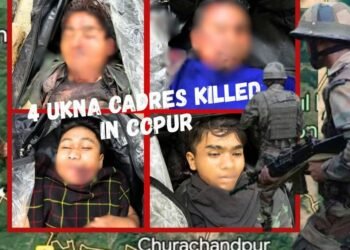Ahead of reopening tourist places, Jammu and Kashmir Chief Minister Omar Abdullah has reignited tensions with Lieutenant Governor Manoj Sinha, accusing the LG of overstepping his designated role and contributing to a “dual governance” crisis in the Union Territory.
During an interaction at the ET Roundtable in New Delhi on Monday, Abdullah expressed frustration over what he described as blurred boundaries between the elected government and the LG’s administration, calling it “the worst form of governance.”
The remarks come amid ongoing friction between the elected government, led by the National Conference, and the LG’s administration, a tension rooted in the dual control system established under the J&K Reorganisation Act, 2019.
The Act grants the LG authority over police and top bureaucracy, while the elected government oversees development matters, leading to frequent jurisdictional disputes. Recent incidents, such as the LG’s unilateral reshuffle of Jammu and Kashmir Administrative Service (JKAS) officers and the controversy over a job appointment for the wife of a Pahalgam attack victim, have further strained relations.
During the interaction, Abdullah took a pointed jab at the LG’s handling of security, particularly referencing the April 22, 2025, Pahalgam terror attack that claimed 26 lives. He suggested that Sinha’s assertion of limiting his role to security and law and order could be interpreted as an admission of failure. “Pahalgam happened under his watch, and it seems that is his way of putting his hand down,” Abdullah remarked, adding that the attack served as a “rude awakening” that such incidents remain a stark reality in J&K. He further noted that public anger over the attack should not be misconstrued as support for the abrogation of Article 370 on August 5, 2019.
“I am not sure the reaction would have been as muted if I had been responsible for security and law and order, but that’s where politics comes into play,” Abdullah said, hinting at perceived leniency toward the LG’s administration. While maintaining that he is not one to issue threats, Abdullah warned that “everything comes with an expiry date,” signaling growing impatience with the current governance structure.
Abdullah pointed out that despite LG Sinha’s recent claim that his authority is limited to law and order and security, the LG has been actively involved in governance-related activities. He lays the foundations of factories in industrial estates managed by the elected government. He distributes job orders prepared by departments managed by the elected government. There are areas where the boundaries are blurred,” Abdullah said, highlighting instances where the LG’s actions have overlapped with the elected government’s responsibilities.
The Chief Minister urged the LG to endorse and approve the Transaction of Business Rules (TBR) framed by the elected government’s Cabinet, which he asserted are fully compliant with the Jammu and Kashmir Reorganisation Act, 2019. “Business rules that we have framed are entirely within the domain of the J&K Reorganisation Act. They don’t step beyond its boundary, even though we don’t agree with the Act,” Abdullah stated. He emphasized that the proposed rules aim to clarify the distribution of responsibilities to eliminate confusion, without infringing on the LG’s powers over law and order, security, or the transfer of IAS and IPS officers.
Abdullah’s comments reflect the National Conference’s broader push for the restoration of statehood, a demand he reiterated earlier this month in the presence of Prime Minister Narendra Modi during the inauguration of the Katra-Srinagar Vande Bharat Express.
As the debate over governance and statehood intensifies, Abdullah’s latest remarks underscore the deepening rift between the elected government and the LG’s administration, raising questions about the future of governance in Jammu and Kashmir.


